After a brief hiatus, Bug Bytes is back and better than ever! This Bug Bytes is with the lovely Robyn James of The Dropout Diaries. Here, she tells us all about what it’s like to live in Vietnam, including what to eat, what to expect and the effect the Vietnam War has had on the Vietnamese.
###
Bug Bytes: You lived in Vietnam. How cool! What part were you living in? What brought you there? Where were you originally from?
Robyn James: I lived in Ho Chi Minh City for nearly four years. HCMC, which many still call Saigon, is considered the business and financial capital of Vietnam. The political capital is Hanoi and it’s considered a more refined and cultural city. I wasn’t smitten by Hanoi on my first, second or third visit, but I loved HCMC instantly for its vibe and energy.
I’m originally from Australia but now I love saying I’m from Vietnam. People get so surprised!
BB: Were your Vietnam days before you had your little family? Or did you all live together?
RJ: I went to Vietnam for a career break and had planned to stay for three months. However, my employer wouldn’t give me a leave of absence so I had to quit. Once in Vietnam, I had no real reason to go back and I was having so much fun so I just stayed.
I met my now-Darling Man after I’d been in Vietnam for about a year. A colleague brought him along to the company Tet party, which is kind of the local version of the office Christmas party.
My colleague kept inviting him to social events and we just hit it off. The rest, as they say, is history.
BB: Cute! I think it’s great how much you write about your baby (so cute!) Was Vietnam a difficult place to travel with a child?
RJ: Vietnamese people absolutely adore babies and children and it can be quite overwhelming.
We went to Darling Man’s hometown for Tet (lunar new year) and, according to family tradition, we went to visit a local temple. The baby had fallen asleep in her carrier and I was shading her face from the sun. But in Vietnam, little old ladies just cannot leave a baby alone. They were crowding around me, pinching her legs and pulling back the cover to look at her face. Then they’d loudly announce “THE BABY IS SLEEPING. SO CUTE. THE BABY IS SLEEPING.” And pinch her leg again. After a while I told Darling Man I was going to belt one of them if they didn’t give me some space, which he relayed very diplomatically.
The main problem with taking children to Vietnam is the traffic. It’s crazy and the air can be quite polluted. Footpaths are not really used for walking. They’re for parking motorbikes and sidewalk coffee shops and food stalls and welding, cutting metal or any other noisy and dangerous task that you don’t want to do inside your house. So you often have to walk on the road, which can be very daunting, especially if you’re not used to the rules of the road.
Downtown Saigon is different. Things are a lot more organized there and the footpaths are clear for walking. In other tourist areas, such as Hoi An, Nha Trang and Hue, things are generally a lot quieter and pedestrian friendly.
We took the baby to Con Dao Island just after her first birthday and we had a lovely time. However, I refused to let her on a motorbike, thinking taxis would be available. But there were no taxis there, so we walked a lot, in the heat, carrying the baby. One day we hired a car with a driver to take us to what was supposed to be the most beautiful beach on the island. The driver got bogged, so we walked to the beach, then walked to the airport to hitch a lift back to our hotel.
BB: What sort of accommodation were you living in? Was it inexpensive or kind of pricy?
RJ: When I first arrived in Ho Chi Minh City, I lived in a guest house in the backpacker district, known as Pham Ngu Lao. I think I was paying a touch under US$300 a month for the room, which was spacious, with a bed, a wardrobe and a desk and a decent bathroom. Breakfast was included, too, up on the rooftop terrace.
From the guesthouse, I moved into a studio apartment. That was about $350/month. Then when Darling Man and I decided to move in together, we found a newly-built house in a small hem for about $520/month. The house was a traditional narrow Vietnamese house, with three bedrooms and four bathrooms and a rooftop terrace.
Darling Man used a rental agent to find the place and no mention was made of me being a foreigner until the day we signed the lease. I could see the agent and the landlord were mentally kicking themselves for not imposing what’s called the “foreigner tax”, which is any kind of markup slapped onto any good or service just because it’s being sold to a foreigner.
Anyone looking to live in Ho Chi Minh City for any length of time has to be aware
of how noisy the place can be.
If you find a place you like to live, go back there many times to gauge the noise levels throughout the day. We thought we were moving into a quiet little hem (alley) but the neighbors were so loud. They had a home business so there were motorbikes coming up and down the alley all the time. Then there was their karaoke machine. You have no idea how much the Vietnamese love karaoke — at breakfast, lunch, dinner or right through the night. And they like it LOUD, too.
BB: Are there still visible leftover scars from the war?
RJ: There are scars on the people. A stall holder might take his shirt off to wash down his stall and you’d see what seemed like bullet holes in his back. In the non-tourist areas, there were many beggars. Some were older, with physical scars like missing limbs or severely burned faces. And many had birth defects from the Agent Orange sprayed by US forces during the war.
The saddest thing I saw was a badly deformed man, who had no arms or legs. He was just a torso with a head. His family had carried him to a busy intersection, where they’d laid him on the ground in the sun next to an upturned hat for people to put money into. He was panting from the heat. It was so terrible. I would have put all my money in the hat (there’s no social welfare in Vietnam) but I was on my motorbike, stuck in the flow of traffic and I couldn’t stop.
BB: Describe a typical day in your Vietnamese town.
RJ: I’ll describe a typical Sunday from 2009, before the baby arrived.
Most Sunday’s we’d load “the family” onto our motorbike for our breakfast run.
Darling Man would drive (as is the custom in Vietnam), I would sit on the back and hold our dog between us, her nose poking around one side of Darling man and her tail sticking out the other. I thought we looked hilarious but no one really batted an eyelid. In Vietnam, motorbikes are the standard form of transport so everything goes on motorbikes. I have even seen guys transporting kitchen sinks (yes, really!), toilets and queen-sized mattresses on the back of motorbikes.
We’d stop off at a nearby pho (noodle soup) restaurant. Darling Man always had pho bo (beef noodle soup) and I’d had pho ga (chicken noodle soup). If we were too late the pho ga would be sold out and we’d adjourn to a nearby hu tieu (pork and prawn noodle soup) restaurant. The dog would sit patiently under the table and this was considered unusual. People would give us funny looks and sometimes children at the next table would seem a bit frightened.
After breakfast, we’d get back on the bike and continue down the road a few blocks to a temple that had a lovely park out the back. Here we’d let the dog off and she’d have her weekly runaround. I insisted on picking up her poos with a plastic bag and putting them in the rubbish bin. Darling Man and any other Vietnamese person who saw me thought that was the most disgusting thing they’d ever seen. Eventually Darling Man would do it too, because it’s so much nicer to be in a poo-free park.
We’d usually walk through the park to a small street market and buy a fresh coconut to drink. Then Darling Man would leave the dog and I to enjoy the park while he’d walk over to the supermarket to get some lunch supplies. This was always an awkward time. I HATED the supermarket. It was so crowded and people would push me. It was mostly little old ladies who did the pushing. I tried to think of it as a pre-emptive push. They were so worried that this huge lumbering Westerner would stand on them, so they’d push me out of the way before any lurch occurred. It didn’t matter that I’d be standing off to one side, trying to avoid the crush. Or that I’d be queued up at the check out. I was always being pushed and it used to drive me crazy. So I’d wait in the park.
After our pho and park jaunt, Darling Man would usually cook up a fantastic three or four course lunch. He loves cooking and he comes from a family of good cooks. Then we’d usually have an afternoon nap and do some chores.
By late-afternoon, Darling Man would be heavily embroiled in organizing our evening, which usually involved meeting his friends for dinner and drinks and then heading off to a club.
BB: How was the cost of living? Did you often go out to eat or cook in?
RJ: The cost of living was quite low. We ate out a lot and we ate very well. The average income in Vietnam is only about $1,000 a year. A YEAR! So basic items are cheap and petrol/gas is subsidized by the government. To the average Vietnamese person, our lifestyle was very extravagant, especially as there were only two of us living in such a big house. We would have liked to have lived in a smaller place but we couldn’t find anything suitable.
We paid about $520/month for our house. We paid about $60/month for electricity.
The bill was so high because I insisted on sleeping with the air-conditioning on.
A night out with our Vietnamese friends, eating many seafood dishes and drinking many beers, usually cost $7 per person. Although going to a club costs a fortune because you’d usually have to buy a whole bottle of spirits for $60+ (but you’d get a free fruit platter thrown in). Filling up my motorbike usually cost about $5 and I only had to fill up about once a week.
We lived more like locals, albeit well-paid ones, than expats. I worked for two local companies and I was paid more than local employees but only a fraction of what expats working for multinationals were paid. Vietnam can be a lot more expensive if you live in a big house in the expat area, have a car, buy imported Western food at the supermarkets and eat at the high-end restaurants. I found living locally was a lot of fun and it was nice to have the money to splurge every now and again at a fancy restaurant.
BB: Okay, let’s talk food. What are some must-haves when eating in Vietnam? Any
dishes we should be wary of?
RJ: I would say try everything. Vietnamese food is so diverse. I love the fresh wraps, the soups and the bahn mi (baguettes). My all-time favorite dish is clams steamed with lemon grass, something I couldn’t eat when I was pregnant.
I would urge people to stay away from eating dog or any kind of “jungle food”. I’ve seen dogs being transported from the dog farms to the dog restaurants and they were terrified. Pet dogs are also regularly kidnapped and taken to dog restaurants if their
owners don’t pay a ransom. I find the practice utterly repulsive and I don’t think tourists should encourage it at all.
“Jungle restaurants” serve tortoise and wild boar and a range of endangered animals. I’ve heard men boast about how they get extra power from eating an animal listed in Vietnam’s Red Book, the official list of endangered species.
BB: Eww! Aside from dog-eating, did you find the Vietnamese to be friendly? What are the people like?
RJ: Vietnamese people usually are very friendly. However, if you’re in Vietnam as a tourist, you’re probably only going to meet tour guides, hotel staff and hustlers. The level of English in Vietnam is quite low and it’s an incredibly difficult language to learn, so it can be difficult to connect with people.
I was incredibly lucky to have met Darling Man, who introduced me to his friends and family.
BB: If a friend were heading to Vietnam, what advice would you give them?
RJ: Get out of the tourist areas. By all means, see the sights, but venturing into the countryside or into the suburbs will give you a truer picture of Vietnam. It’s a crazy and magical place that is so much fun to explore.
###
Thanks so much Robyn! To find out more about Robyn, visit The Dropout Diaries or follow her on Twitter @DropoutDiaries
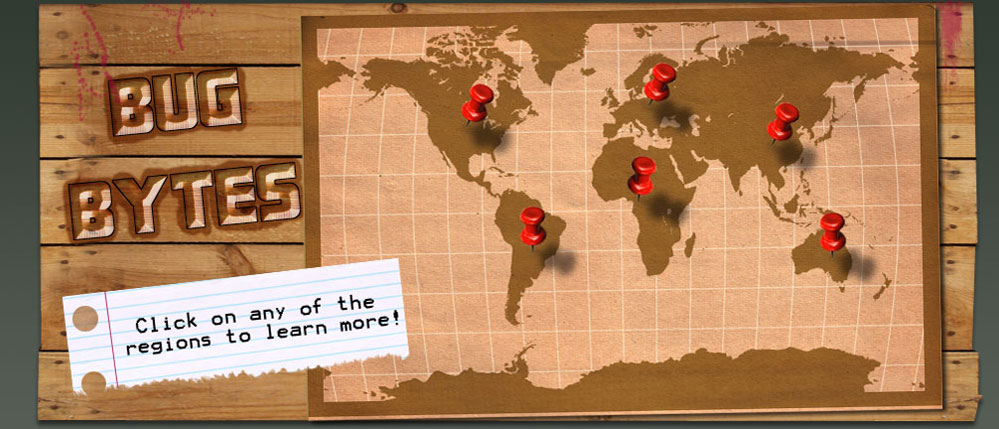
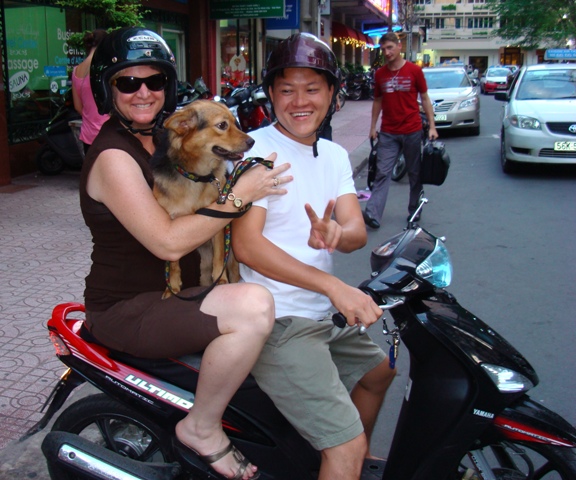
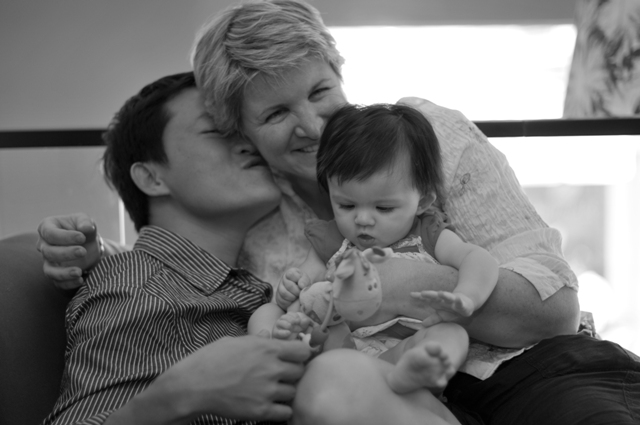
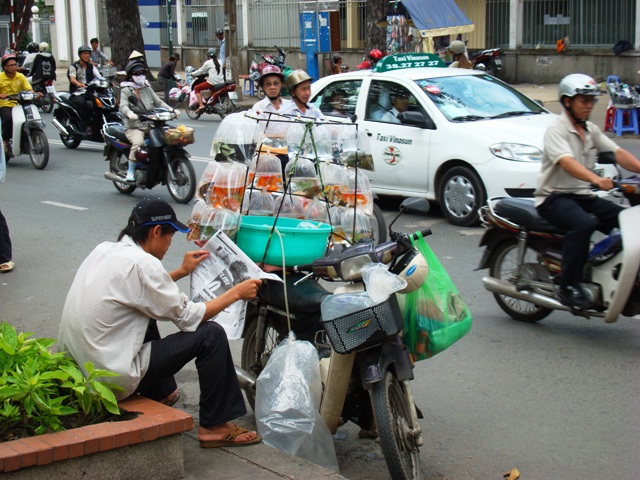
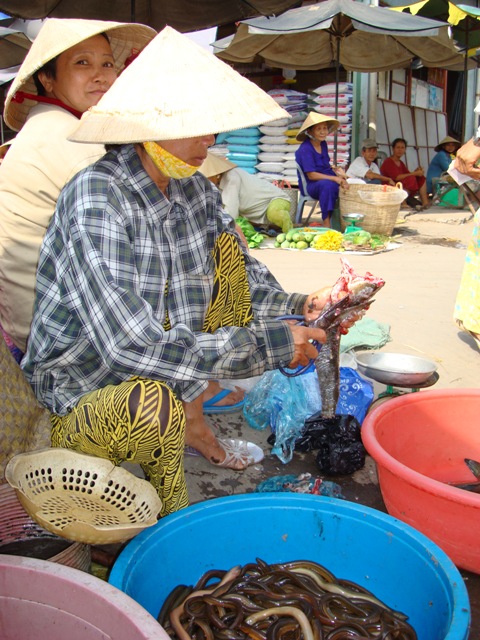





{ 6 comments… read them below or add one }
That’s awesome that you got around the “foreigner tax” when renting your house. It has been very frustrating for me in Buenos Aires.
Phenomenal interview with Robyn! I learned so much about a city that I can’t wait to visit. Thanks for interviewing her because she has always been somewhat of an enigma to me with her coded words like Darling man (and he is btw), so it’s great to really ‘meet’ her and discover so much about her fantastic life.
So great to read this interview, find out more about Robin and her life in Vietnam. Fascinating. i would love to live in Hanoi for awhile. Gives me food for thought.
Robyn, this actually the first time I have seen your photo! What a great interview- definitely makes me want to go get Pho now. Although I am very shocked to hear about dog restaurants and kidnapping pets for ransom. That is just evil!
Thanks for the interview Kelly! It was great to have a chat about our life in Vietnam.
I’ve been discussing my mysteriousness with Darling Man and he thinks I’m being too cautious. I may have a “coming out” party soon — and you’re all invited of course!
(Robyn James is just my blogging pen name.)
Interesting take on life in Vietnam with a baby! While it’s fun to read about the things that are different, some things with little ones are universal! 🙂